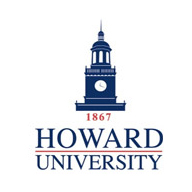Below is a summary of the abstract you submitted. Presenting author(s) is shown in bold.
If any changes need to be made, you can modify the abstract or change the authors.
You can also download a .docx version of this abstract.
If there are any problems, please email Dan at dar78@pitt.edu and he'll take care of them!
This abstract was last modified on March 22, 2023 at 1:56 p.m..

With the rise of antibiotic resistant bacteria, scientists have begun to explore alternative forms of treatment for bacteria related infection. One of these alternatives is the application of bacteriophages (viruses that infect bacteria) as a treatment option for bacterial infection. To aide in phage discovery the Howard Hughes Medical Institute established the SEA-PHAGES (Science Education Alliance-Phage Hunters Advancing Genomics and Evolutionary Science) program that trains students to discover, isolate, and characterize phages from the soil of their college campus. The discovery program is divided into two main parts: the bioinformatic analysis of phage genomes and the first, which entails the collection, purification, and amplification of novel virions from environmental samples. As apart of this program we discovered the phage Aikoy using Mycobacterium Smegmatis as a host bacterium. Mycobacterium smegmatis is in the same family of pathogenic bacteria such as Tuberculosis and Leprae. We then sent isolated Aikoy genomic DNA and sent it to The Pittsburgh Institute to be sequenced. The genome sequenced for our research was a bacteriophage by the name of Aikoy. The sequencing revealed that Aikoy belongs to the AE cluster. Other members within the same cluster include Leopard and Onyinye. Aikoy has a genome length of 71626bp, which is the longest amongst AE cluster. All members of the AE cluster had a GC Content of 58.8%. We currently are in the process of annotating the genomic sequence to further characterize Aikoy
